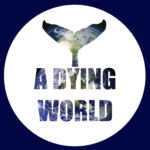Environmental Grief & Ecological Grief
While ecology represented a major paradigm shift in understanding nature, very few were able to apply its insights to understanding the afflictions of the mind. The ecologist, Phyllis Windle, in her essay “The Ecology of Grief”, pioneered a bridge between professional ecology and psychological grief (Windle 1995), and her opening of this transdisciplinary space was followed later by the thanatologist Kriss Kevorkian, who explained that desolation in terms she named ‘environmental grief’ and/or ‘ecological grief’ (Kevorkian 2004, 2019). These terms, and the grief theory that underpins them, have recently re-appeared in the literature as a response to the climate crisis. ~ Dr. Glenn Albrecht, Environmental Philosopher and author of a recent book called Earth Emotions, coined the term solastalgia.
Environmental grief is defined as the grief reaction stemming from the environmental loss of ecosystems caused by natural or man-made events. If we look at the definition of environmental, we find that it relates more to the impact of humans on the natural world. We’re looking at this grief reaction from a larger perspective such as the loss of a forest or species due to humans. I’m reacting with environmental grief to the decline, and perhaps extinction, of the Southern Resident Orcas in the Salish Sea.
Ecological grief is the grief reaction stemming from the disconnection, and relational loss, from our natural world. In this case, I feel ecological to be more like our relationship to physical surroundings and living organisms like the trees in the neighborhood. Ecological grief would be the reaction I’d have to those trees being cut down. Not only are the trees being killed, but birds and other animals that call those trees home are either being killed or having to find another place to live.
Once a name is put to any type of symptom or feeling, people are generally able to move forward and begin the healing process.
When I began my doctoral studies in 2001, I was challenged by a professor to contribute something new to the field of thanatology. When I did that by creating the terms above, the next challenge was finding people who felt the same way I did/do about Nature. Instead, most people I met at that time questioned why anyone would grieve the loss of the environment. Today, most people I know are grieving the loss of species/ecosystems, and doing all they can to save our planet, and all her inhabitants.
Please reach out to schedule a free consultation, Mourning Meeting, or inquire about scheduling a speaking engagement/presentation
Kriss Kevorkian, PhD, MSW, is a Thanatologist, specializing in Biocentric Thanatology. She holds a doctoral degree in thanatology, the study/science of death, dying and grief. She is the leading authority on environmental grief and ecological grief.
The beautiful photos throughout the site were kindly offered for use by Michelle Bender. All images are copyrighted.


